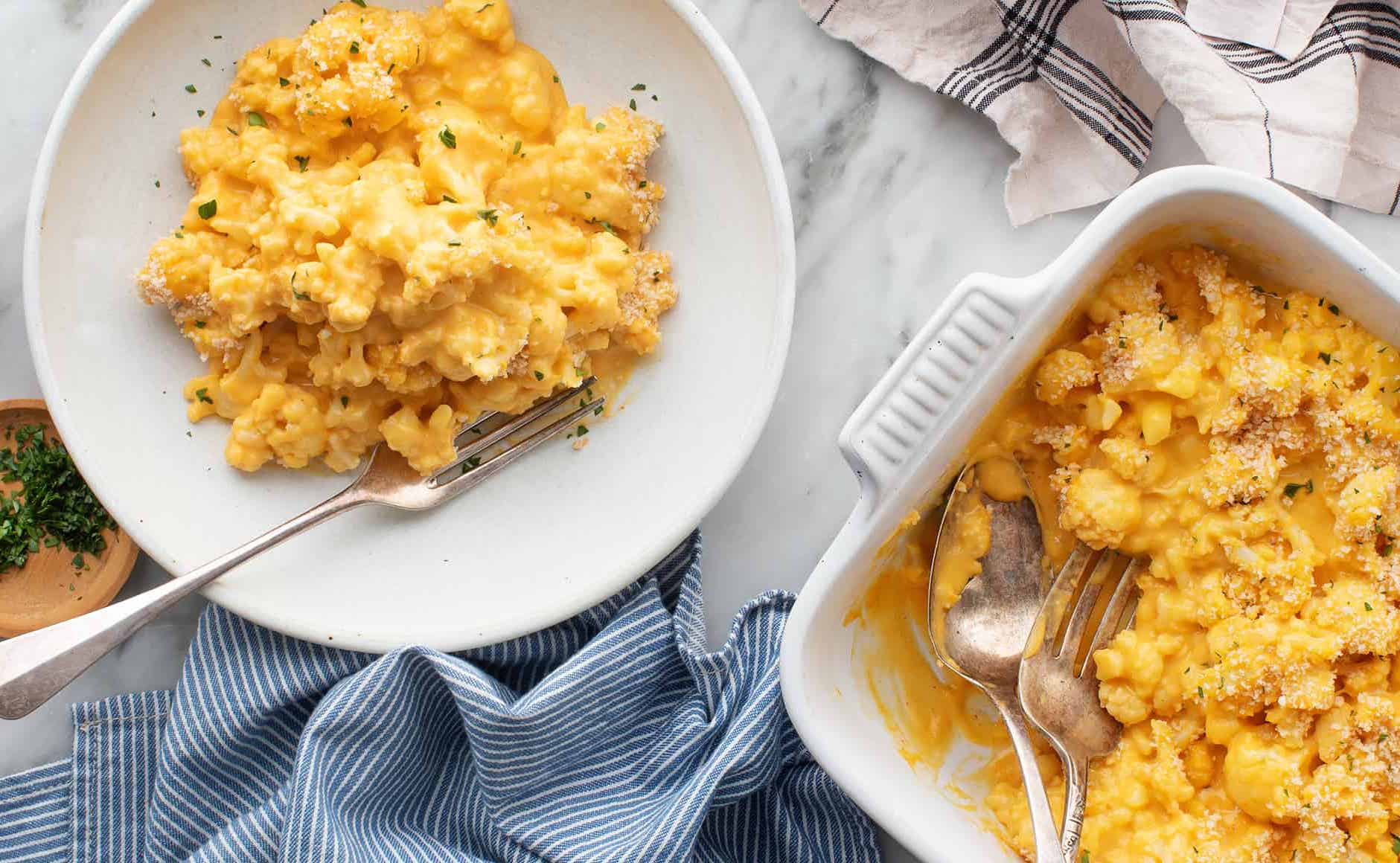By now you’ve probably heard of nutritional yeast, or “nooch” as it’s affectionately called by superfans. The versatile ingredient is popular among vegans, and nutritional yeast recipes are common in plant-based and dairy-free cooking. But if you’re not already a nutritional yeast loyalist, chances are you have some questions about the stuff—like what it is, exactly, and how to cook with it.
What is nutritional yeast?
First of all, to clear up any confusion: Nutritional yeast is a deactivated form of yeast, which means it won’t make a loaf of bread rise the way active yeast would. It’s cultured from the same type of yeast that leavens bread, but the manufacturing process kills the live yeast.
Nooch is instead meant to be used as a cooking ingredient, seasoning, or condiment. The health food store bulk-bin staple has a golden-yellow color and is available in small and large flakes.
Nutritional yeast is probably best known for being the magic ingredient in all those “cheesy” vegan and dairy-free recipes you’ve seen floating around. The flavor isn’t identical to something like Pecorino or cheddar, of course. Nutritional yeast has its own distinctive and delicious flavor—a little cheesiness, a little nuttiness, a little umami.
What are nutritional yeast benefits?
As its name indicates, nutritional yeast is in fact packed with nutrients. An average 15-gram serving (about three tablespoons or one quarter-cup, depending on the flake size and brand) provides eight grams of protein and three or four grams of fiber, according to the USDA.
Nutritional yeast also contains vitamins and minerals like iron, potassium, thiamin (vitamin B1), and riboflavin (B2). Plus, many (if not most) nutritional yeast products on the market are fortified with a variety of B vitamins, including additional B1 and B2, plus niacin (B3), pantothenic acid (B5), folate (B9), and vitamins B6 and B12. (B6 and B12 are mostly found in animal products, and therefore hard to come by on a vegan diet—yet another reason nooch is pretty popular among that crowd.)
Another potential benefit of nutritional yeast is that it’s a helpful cheese substitute for anyone who’s trying to avoid dairy (whether due to an allergy, intolerance, or preference). And you don’t have to store it in the fridge!
How to use nutritional yeast
When it comes to subbing in for cheese, nooch may not be identical but it can really do the trick—especially when used in combination with other ingredients that add creaminess (like cashew cream), tang (like lemon juice), or bite (like garlic) to better imitate the flavor profile of your fave cheeses. Trust us, you won’t miss the cheese one bit.
Nutritional yeast works as more than a cheese replacement, though. Even if you’re not dairy-free or vegan, nooch is totally worth keeping in your pantry because it honestly tastes good in just about anything. A couple of tablespoons can quickly add a much-needed savory boost to whatever you’re eating, like a sauce or soup. And you don’t actually have to cook nutritional yeast to enjoy it. You can just sprinkle it (generously) straight from the container over your food, wherever you might use grated Parmesan or a finishing salt—salads, popcorn, pasta—and dig right in.
If you’re psyched to start using nooch in the kitchen, let these 30 nutritional yeast recipes show you all that the star ingredient is capable of. Some are all about the nooch, and others are great examples of how easy it is to swap in nutritional yeast for cheese. Many of the recipes are indeed vegan and dairy-free, if that’s something you’re interested in—but they’re worth trying even if you’re not, because they’re totally freakin’ delicious.

